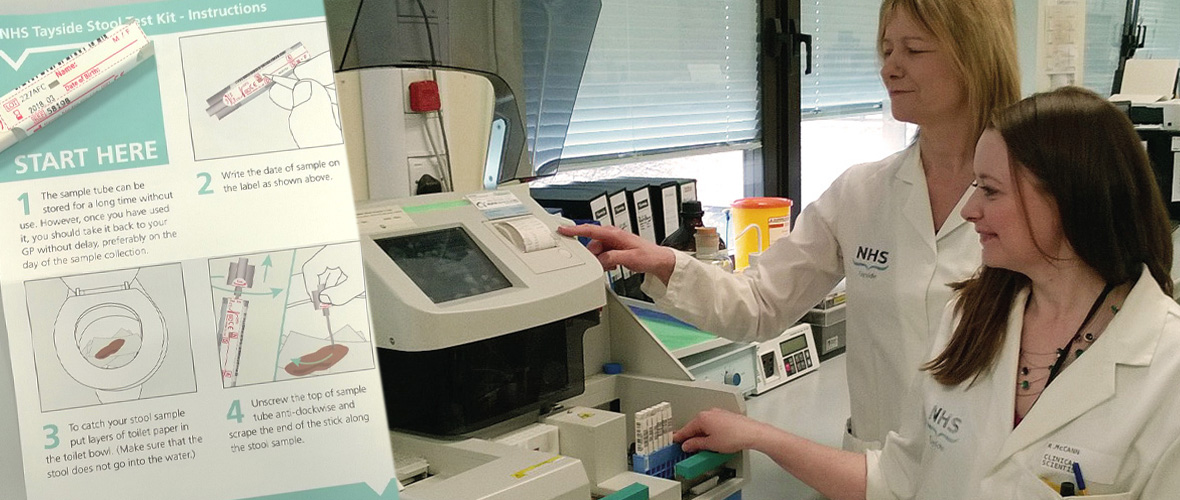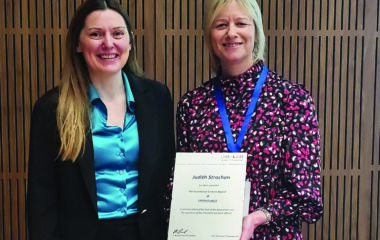- [email protected]
- +44 (0) 23 8048 3000
Introducing the FIT Service at NHS Tayside
- Resource: Reports
- Date: November 10, 2017
 Judith Strachan, Consultant Clinical Scientist at Ninewells Hospital & Medical School, tells us about the introduction of FIT for triaging patients at NHS Tayside.
Judith Strachan, Consultant Clinical Scientist at Ninewells Hospital & Medical School, tells us about the introduction of FIT for triaging patients at NHS Tayside.
Read the Full Article HereGastroenterologists are increasingly challenged to provide an appropriate colonoscopy service to the population with more referrals and longer waiting times. In Tayside we’d seen the number of colonoscopies going up year by year. However, the number of cancers being identified wasn’t changing, despite an increasing number of people being subjected to an invasive and potentially risky procedure.
NHS Tayside has a long standing history of bowel screening and, more recently of also analysing faecal haemoglobin in samples from symptomatic patients. Based on concerns about increasing colonoscopy lists, we became involved in discussions with our gastroenterology team exploring whether we could introduce quantitative faecal immunochemical testing (FIT) into our existing colorectal referral pathway. Could we triage people using a FIT result to refine whether they really needed a colonoscopy?
Data from our initial investigation was published in GUT in 20161. GPs asked patients that they were already referring to gastroenterology to submit a faecal sample, so that we could analyse their faecal haemoglobin with FIT. This didn’t affect the patients’ subsequent management and progression along the standard gastro pathway. We then, in retrospect, assessed clinical outcomes against the FIT result for each patient. This analysis showed that a negative FIT result correlated with a very low chance of having any significant bowel disease such as cancer or IBD.
Using this data we were able to demonstrate that provision of FIT was viable, since we believed the number of unnecessary colonoscopies performed could be cut quite significantly. This was obviously very attractive, not only financially, but also in the potential for reducing the waiting times and pressures for the increasingly challenged personnel.


